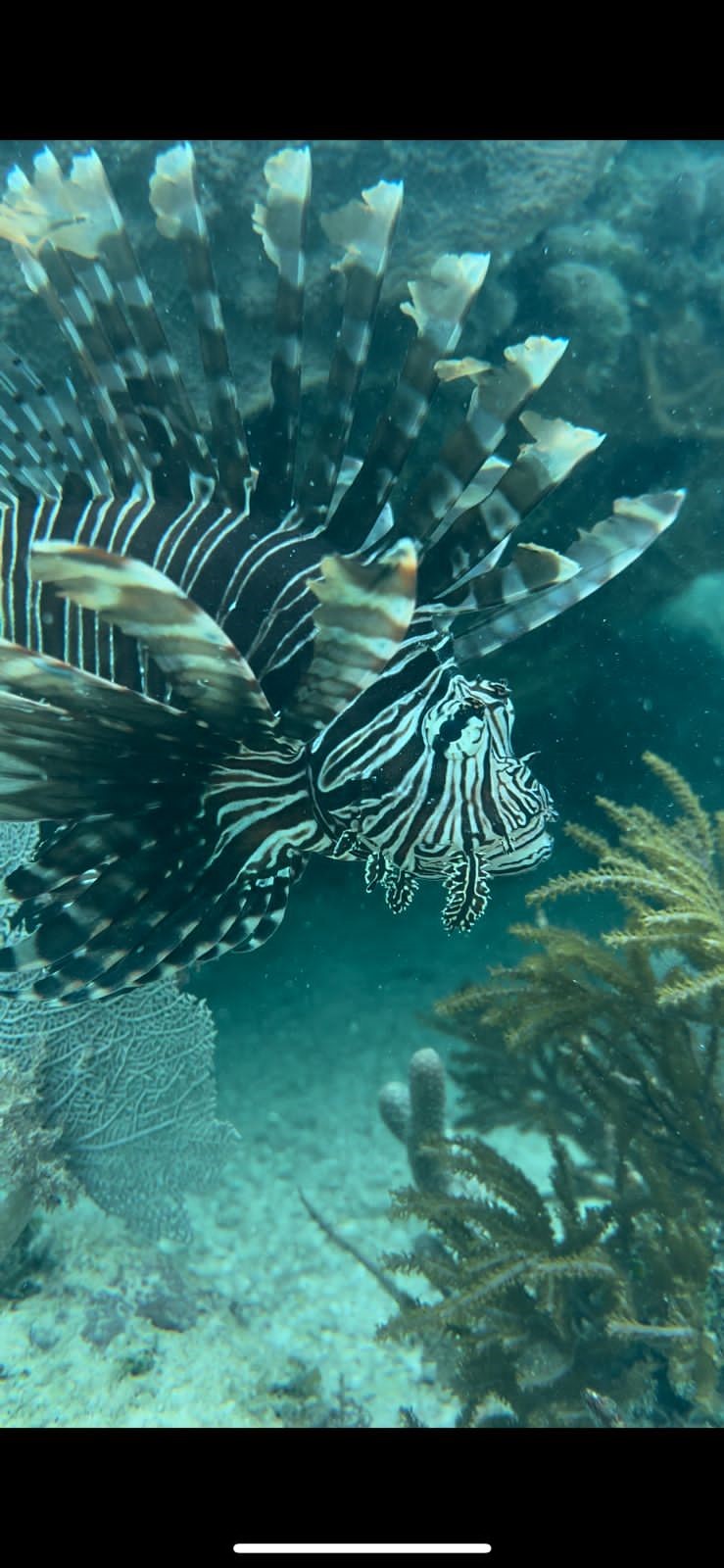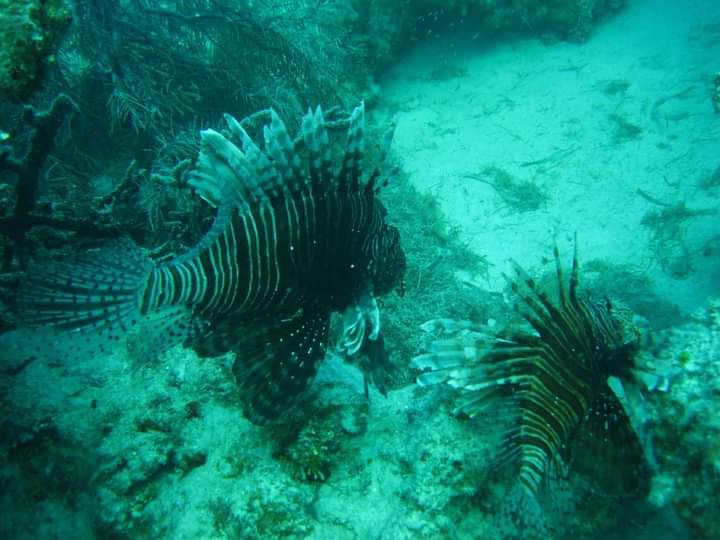


Following a regional strategy for lionfish control helps to monitor, study and control an invasive species that can degrade or alter the marine biodiversity of the Mexican Caribbean. Since 2011, with the contribution of the National Commission of Natural Protected Areas (CONANP) and Community and Bioversity (COBI), a group of fishermen and fisherwomen from the SCPP Cozumel was formed and trained to carry out monitoring within the area, recording the abundance and size of lionfish in the water and taking biometric data when extracting them. Currently the group is not active because the species is now found at greater depths, unreachable for the monitoring divers, so only activities of extraction of the species are carried out, taking evidence through photographs.
This activity has been developed through a multisectoral effort between the fishing communities, civil society organizations, the government, and the private sector. The communities committed to this initiative and followed up on the monitoring to ensure its success. It should be noted that no monitoring activities were carried out within the Biosphere Reserve.
- A multidisciplinary committee was formed and the best lionfish control, monitoring and study strategy was designed.
- The inclusion of women and men from the communities in the control and monitoring strategies was encouraged and they were trained in the development of these strategies.
- Funding sources were identified to support the implementation of the strategies.
- Information was provided and the knowledge generated was disseminated to develop the necessary regulations and policies for control at the national level.
- The creation of the "Regional Strategy for the Control of Lionfish" and the "National Action Plan for the Management and Control of Lionfish" has made it possible to align and focus the efforts of various stakeholders and reduce the effects of the invasive species in the region, through the exchange of experiences in communities that need support for its implementation, that have experimented with alternatives for the control of the species and effective communication between organizations.
- Promote actions linked to national policies, norms and regulations to support lionfish control and management actions, through links and collaboration with NGOs.
- By implementing efficient alternatives for the capture and commercialization of the invasive species, education and communication strategies have been implemented for the control, management and consumption of this species.
- Encouraging fishing communities to carry out biological monitoring and research has made it possible to promote the participation of communities and society in general to capture, monitor and consume the invasive species.